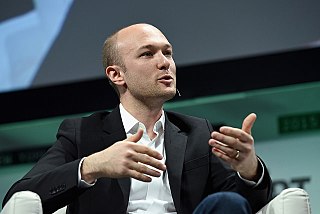A Quote by Travis Kalanick
We want to get to the point that using Uber is cheaper than owning a car.
Related Quotes
What if the New York Times gave out free, cheap Kindles to everyone and said this is how we're doing it now. You know? Maybe that's a way to go. The technology gets cheaper and cheaper, and at some point it has to be cheaper than all these trucks and all this gas, to just say, let's give away a Kindle to everyone.
We're in an inflection point where it's cheaper to learn to read on a tablet computer than it is to learn to read on paper. And that being the case, it's only a matter of time before every 6-year-old kid has a tablet computer, and we know for a fact, 3- to 4-year-old kids are using tablets and iPads, and 75 and 80 year olds are using them.
By rebuilding transportation so that you're not owning this thing that just sits there all the time, you get to rebuild cities in the process. If we do this right as a country, we have a chance to re-create our cities with the people, rather than cars, at the center. Our cities today have been built for the car. They've been built for car ownership. Imagine walking around in the city where you don't see any parking lots and you don't need that many roads.
The good news is we are seeing an incredible surge in non-animal technologies in laboratories. With researchers using stem cells, visually impaired people may one day have new corneas and lenses grown from their own cells. That is likely to be a more effective and cheaper approach than using animals.































